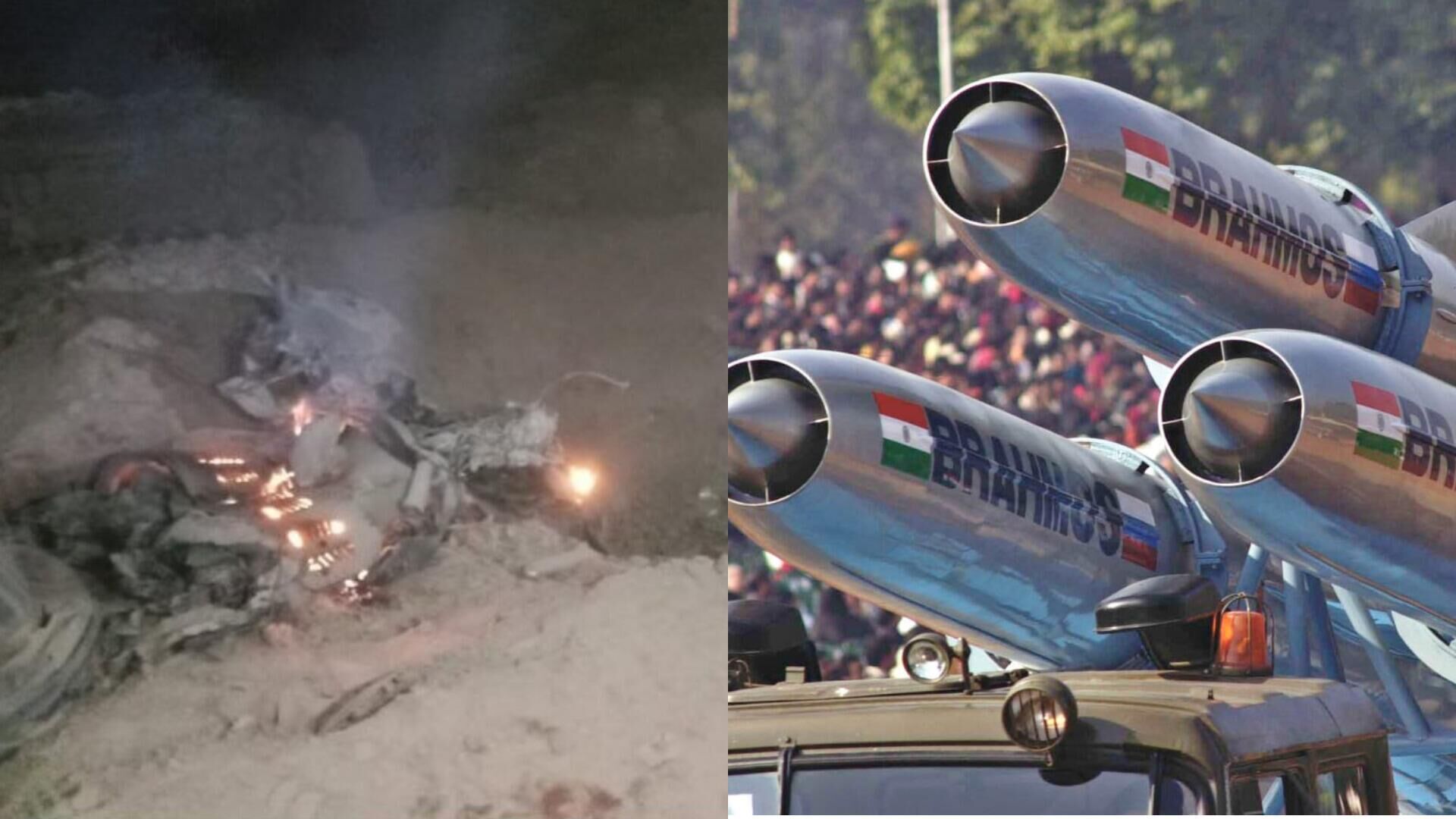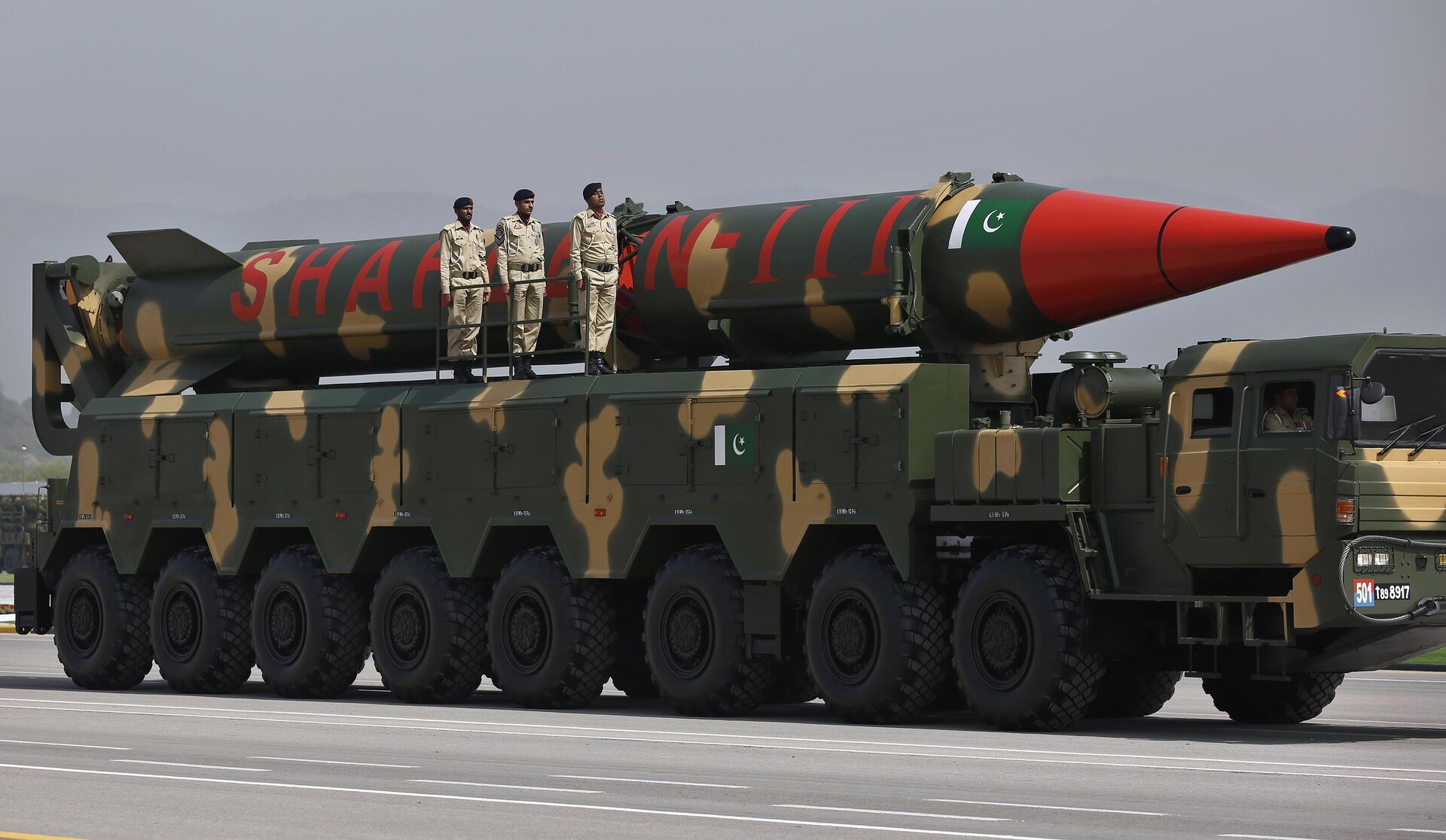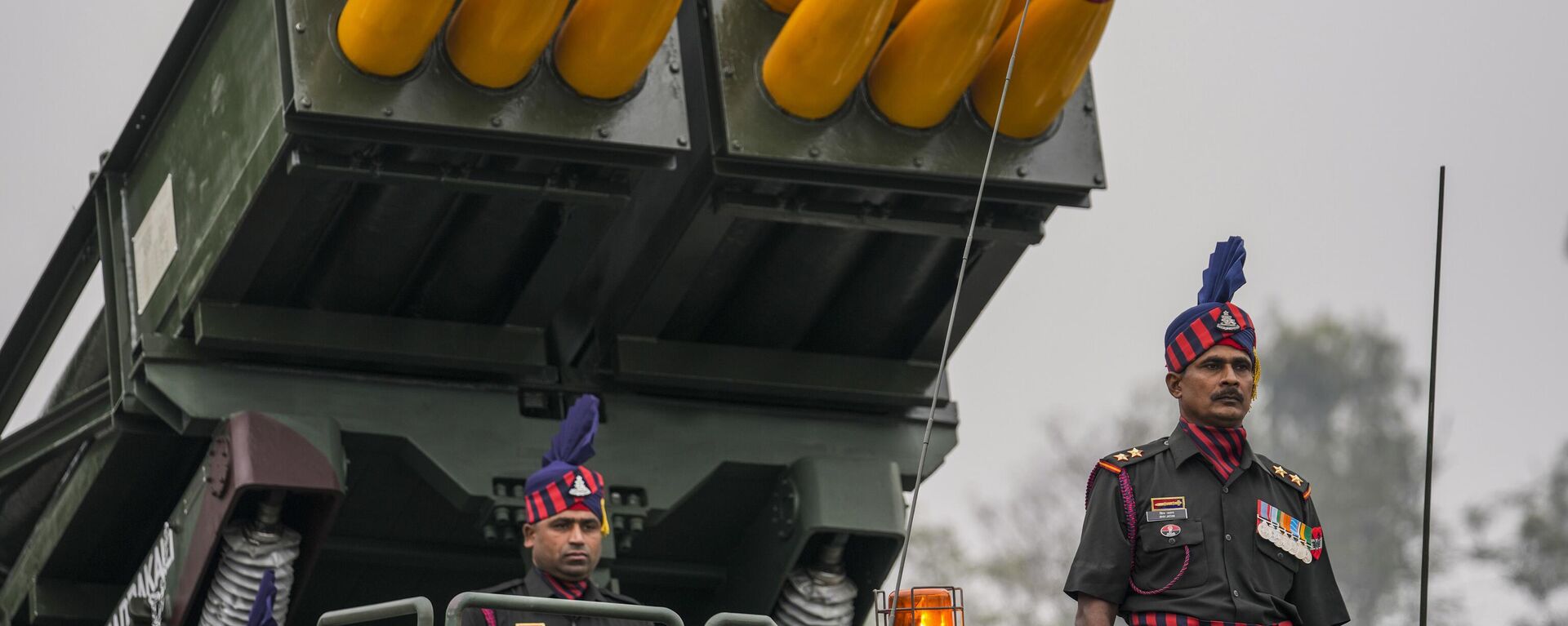https://sputniknews.in/20240426/modern-defense-imperative-why-pakistan-needs-hypersonic-missiles-7222123.html
Modern Defense Imperative: Why Pakistan Needs Hypersonic Missiles
Modern Defense Imperative: Why Pakistan Needs Hypersonic Missiles
Sputnik India
In the era of modern defence systems, advances in missile technology have led the world's major powers to develop highly sophisticated and capable weapon... 26.04.2024, Sputnik India
2024-04-26T17:33+0530
2024-04-26T17:33+0530
2024-04-26T17:33+0530
defenсe news
pakistan
india
russia
https://cdn1.img.sputniknews.in/img/07e8/03/1e/6990703_0:0:1920:1080_1920x0_80_0_0_f4413cee9ac3c6ead35995c6455329b4.jpg
However, India has developed and designed its modern defence system to ensure strategic deterrence against its rivalries. In response, it is now time for Islamabad to pursue military deterrence, balance of power and get out of the security dilemma by adopting a modern defence system and developing hypersonic and supersonic missiles.According to the 2023 Military Strength Report, Pakistan ranks 7th in the world in terms of military capability.The Pakistani military's media wing, the Inter-Services Public Relations Pakistan (ISPR), has stated that the HQ-9/P system significantly enhances Pakistan's air defence and is fully integrated into a digitised system. On the defensive side, Pakistan's missile programme aims to maintain strategic parity with neighbouring India for defensive purposes.Can Pakistan Advance Missile Capabilities?Islamabad has developed a number of advanced ballistic and cruise missiles, including the Ghauri series. While these weapons represent a technological advance, the real-world impact of such military capabilities in interstate conflict remain questionable.However, the Indian Institute of Technology Kanpur has successfully built and tested India's first hyper-velocity expansion tunnel test facility, S2. This development reflects India's growing focus on hypersonic technologies.Strategic Imperatives: Pakistan's Rationale for Developing Advanced MissilesNew Delhi is actively developing missile capabilities, including the Agni-5 MK2, Rudram-2 and 3 and DRDO's HGV, along with the existing BrahMos supersonic missiles. The recent test of an Israeli air-launched ballistic missile (ALBM) suggests that India is diversifying its high-end weapons suppliers and may be pursuing a counterforce strategy against Pakistan's nuclear arsenal.Therefore, in order to defend itself, Islamabad needs to develop hypersonic missiles to ensure military deterrence and strategic capability. This advanced defence system would help maintain the balance of power and strategic military deterrence, especially in light of recent conflicts between Iran-Israel, Azerbaijan-Armenia, and Ukraine-Russia.Intercontinental ballistic missiles (ICBMs) and hypersonic capabilities would bolster Pakistan's military power and deter potential bullying or sanctions from the United States over its nuclear arsenal.
https://sputniknews.in/20231118/south-asias-looming-threats-weaponization-and-nuclear-race-between-india-and-pakistan-5463475.html
pakistan
india
russia
Sputnik India
feedback.hindi@sputniknews.com
+74956456601
MIA „Rossiya Segodnya“
2024
Muhammad Sharif
https://cdn1.img.sputniknews.in/img/07e7/0b/05/5257054_0:0:443:444_100x100_80_0_0_b8bd2af32be62a6eecdb4a84c7fd978f.jpg
Muhammad Sharif
https://cdn1.img.sputniknews.in/img/07e7/0b/05/5257054_0:0:443:444_100x100_80_0_0_b8bd2af32be62a6eecdb4a84c7fd978f.jpg
News
en_IN
Sputnik India
feedback.hindi@sputniknews.com
+74956456601
MIA „Rossiya Segodnya“
Sputnik India
feedback.hindi@sputniknews.com
+74956456601
MIA „Rossiya Segodnya“
Muhammad Sharif
https://cdn1.img.sputniknews.in/img/07e7/0b/05/5257054_0:0:443:444_100x100_80_0_0_b8bd2af32be62a6eecdb4a84c7fd978f.jpg
pakistan, india, russia
Modern Defense Imperative: Why Pakistan Needs Hypersonic Missiles
In the era of modern defence systems, advances in missile technology have led the world's major powers to develop highly sophisticated and capable weapon systems. States such as the United States, Russia, China and India have made significant progress in developing hypersonic and supersonic missile capabilities.
However,
India has developed and designed its
modern defence system to ensure strategic deterrence against its rivalries. In response, it is now time for
Islamabad to pursue military deterrence, balance of power and get out of the security dilemma by adopting a modern defence system and developing hypersonic and supersonic missiles.
According to the 2023 Military Strength Report, Pakistan ranks 7th in the world in terms of military capability.
The Pakistani military's media wing, the Inter-Services Public Relations Pakistan (ISPR), has stated that the HQ-9/P system significantly enhances Pakistan's air defence and is fully integrated into a digitised system. On the defensive side, Pakistan's missile programme aims to maintain strategic parity with neighbouring India for defensive purposes.
Can Pakistan Advance Missile Capabilities?
Islamabad has developed a number of advanced ballistic and cruise missiles, including the Ghauri series. While these weapons represent a technological advance, the real-world impact of such military capabilities in interstate conflict remain questionable.
"Pakistan maintains a strategic balance with India by enhancing its conventional and nuclear forces, as it believes an arms race is costly and undesirable. The country's missile forces are currently well-prepared to address any potential threats it faces," former military officer, Brigadier Dr. Tughral Yamin told Sputnik India.
However, the Indian Institute of Technology Kanpur has successfully built and tested India's first hyper-velocity expansion tunnel test facility, S2. This development reflects India's growing focus on hypersonic technologies.
"While Pakistan's Shaheen-III missiles have the capability to target all of India, the country is still developing hypersonic missile technology, known as the P-282. In this endeavor, Pakistan may seek assistance from China," Umair Aslam, Founder & CEO of the Global Defense Insight, & security analyst, told Sputnik India.
Strategic Imperatives: Pakistan's Rationale for Developing Advanced Missiles
New Delhi is actively developing missile capabilities, including the Agni-5 MK2, Rudram-2 and 3 and DRDO's HGV, along with the existing BrahMos supersonic missiles. The recent test of an Israeli air-launched ballistic missile (ALBM) suggests that
India is diversifying its high-end weapons suppliers and may be pursuing a counterforce strategy against Pakistan's nuclear arsenal.
"Given the escalating dynamics of strategic weapons development in South Asia, particularly with India's advancement in technologies such as MIRV-equipped ICBMs and hypersonic missiles, it is strategically advisable for Pakistan to consider developing or acquiring hypersonic missiles but not ICBMs. This is crucial for maintaining credible deterrence," Syed Ali Abbas, a defense analyst, & Research officer at Center for International Strategic Studies, told Sputnik India.
Therefore, in order to defend itself, Islamabad needs to develop hypersonic missiles to ensure military deterrence and strategic capability. This advanced defence system would help maintain the balance of power and strategic military deterrence, especially in light of recent conflicts between Iran-Israel, Azerbaijan-Armenia, and Ukraine-Russia.
"I think, given the need of the time, it is essential for Pakistan to develop hypersonic missile technology for defensive purposes. By pursuing and adopting modern defense systems, Pakistan can maintain a balance of power and strategic military deterrence," defense pundit Umair Aslam said.
Intercontinental ballistic missiles (ICBMs) and hypersonic capabilities would bolster Pakistan's military power and deter potential bullying or sanctions from the United States over its nuclear arsenal.
"To effectively manage the balance of power, strategic deterrence, and security dilemma in modern defense, I believe, Islamabad needs cooperation and engagement with India first. Moreover, Pakistan should adopt a multi-faceted approach," defense analyst Syed Ali Abbas concluded.




